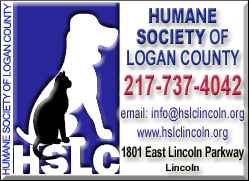|
 When ALMH moved to
its new site on the city's west side,
the old facility was left standing empty. Though the building had
historical and sentimental value to many in the community and
looked good from the outside, the inside of the building, the
heating and other vital parts of the structure were not in good
repair. When ALMH moved to
its new site on the city's west side,
the old facility was left standing empty. Though the building had
historical and sentimental value to many in the community and
looked good from the outside, the inside of the building, the
heating and other vital parts of the structure were not in good
repair.
On April 27, LDN published a letter from Dolan C. Dalpoas, president
and chief executive officer of ALMH. In the letter he wrote:
"For the last 18 months we have engaged regional experts to find a
new use for the old hospital. Our attempts have not been successful and there is
no reason to believe the results of such efforts will change. This leaves us
with a choice. We could do nothing and watch the building we care so much about
slowly decay. Or, we could take action, do the right thing and raze the
building. By taking this action we would create eight acres of new green space
in the middle of a residential neighborhood."

The hospital gave ALMH's former finance department building and
property to the District 27 schools, and a half-acre of property went
to St. John's United Church of Christ for use as additional parking
and storage for the church. Another parcel, which was previously a parking lot
across from the hospital, was given to the city to sell if
they so wished.
When all was said and done, 3.75 acres was left, which in
recent weeks, the hospital deeded over to the city of Lincoln.
Thursday evening Mayor Keith Snyder opened the meeting by saying the
city has been having conversations with ALMH for several months
about what to do with the green space created when the old hospital
was taken down.
He indicated that in those discussions the idea of turning the green
space into a health park had been well received by the hospital. He
said there were no conditions attached to the gift from the hospital
to the city, but that ALMH administrators were pleased with the idea
of the creation of the park.
Snyder said that in addition to the gift of land, a second gift came from
the Woods Foundation, which agreed to underwrite the cost of the
development of a concept plan. With that gift, the city is able to
have landscaping architects look at the property and design a park
according to the wishes of the city. Snyder said the city has hired
Kent Massie of Massie Massie & Associates of Springfield and Lisa
Kramer of Prairie Engineers in Lincoln.
Snyder also said he has appointed a steering committee for the
project, most of whom were in attendance at the meeting. Those
members are Candy Letterly, Njere Berry, Todd Mourning and his young
son Tate, Bill and Jean Gossett, Alderwoman Kathy Horn, Wayne Cox,
Marsha Greenslate, and Roy Logan.
Snyder commented on Todd and Tate Mourning, saying he'd asked Tate to
be involved because he is much younger and can see things from a
kid's perspective.
Snyder also acknowledged that in attendance at the meeting were
city council members Joni Tibbs and Jeff Hoinacki.
When Snyder turned the meeting over to Massie, the architect
explained the purpose of the meeting was to look at various concepts
and gather information from those in attendance about what they
want their park to be.

Using a PowerPoint presentation, he walked through various
components that could be integrated into the park. He said with the
acreage being small, probably not everything he showed
them could be used. It will be up to the committee, with the input of
the community, to decide what is best.
He said the health park concept is still relatively new, but they
are growing in popularity. In a health park a variety of
components can be integrated, including walking paths, exercise
areas with outdoor workout equipment, areas for physical therapy,
open lawn space for Frisbee and other such activities, small court
activities such as bocce ball, roller skating or ice skating,
biking, age appropriate, exercise-oriented children's areas, nature
observes and meditation areas, and picnic areas.
He also included that some parks choose to establish a memorial area as
well, attributing or dedicating the park to something or someone.
Massie explained there is a lot of time invested in putting together
a park. He said it would begin with a site analysis considering the
size of the location, move into a graphic plan where the desired
components would be incorporated into the space, and then it would
eventually become a reality.
Lisa Kramer spoke briefly about the timeline of the steering
committee, saying they would have monthly meetings to develop the
conceptual plan, would have another public meeting in January to
discuss the plan, and then present it to the city council in February of
2012.
With the plan completed, the next step will be to find the money to
implement it. It was stressed that at this point there are zero
dollars for the construction of the actual park. The project will
have to be funded by grants. Kramer said there were grants available
for this type of construction. She specified one grant that would be
applied for had a submission deadline in March and another in July
of next year.
When the floor was opened for discussion, audience members were
asked to give their input. One member of the audience spoke about
the need for something for toddlers. She said the city is blessed
with parks, but there is very little available for the very young.
She also noted there is a lack of facilities for the disabled.
Wayne Cox said he had talked to his wife, Dr. Melissa Cox, about what
she as a doctor would like to see in the park. She had said there
was a need for walking space, but she would like to see something
that was short laps or intersecting trails where a person would be able to stop
if they became overly tired.
As discussion continued, one person stood out as opposing the entire
idea of a park. Ray Payne said he was concerned that the area is
even being considered for another park in Lincoln. He said there
were plenty of parks in town, and what the city really needed was
more housing space. He argued all the features being discussed could
easily be put into Memorial Park.
[to top of second column] |

Snyder commented on this, saying: "This was a gift to the city, and
we want to pay homage to that gift. We want to be good stewards of
the site. It is a site that has been used for wellness and healing
in our community for over a hundred years, first with the Deaconess
Hospital, then Abraham Lincoln Memorial Hospital. We thought that a
health park would pay homage to that site in a nice way."
In addition, Snyder said the city needs an additional place to
promote health and wellness. Statistically this area has greater
incidences of high blood pressure, diabetes and heart disease than
the state and national averages.
Finally, Snyder said he felt the park would be an economic boost. He
said studies are starting to show that people move to communities
and stay in communities where there are recreational facilities and
amenities.
Payne argued the city needs to be looking at bringing money in, not
out. He said the city could sell the land and make money from it.
Snyder said there is a portion of the land given to the city
that will be sold. That is the parking lot on the north side of
Eighth
Street that was also given to the city. Snyder said the lot will be
sold, with the money possibly going toward the development of the
park.
As the objections were being addressed, audience members also
contributed to the discussion. One said the parks in the area now,
such as Kickapoo, do not have wheelchair-accessible trails. It was
also noted the Eighth Street location is in the heart of a residential
area and close to several schools.
Massie also interjected that in every community there is a need for
different parks with different types of activities.

Njere Berry wondered if everyone was getting too hung up with the
word "park." She said in reality what the city is looking at is a
health site. She said she thought they should take the word "park" out
of the discussion.
Marsha Greenslate also commented, saying she saw a need for an
outdoor facility in Lincoln, and she stressed that no community can
have too many green spaces.
Payne said what he saw was thousands of dollars going out and
nothing coming back in as a result, but Candy Letterly disagreed.
She said she takes her family to a place in Bloomington that they
enjoy. While they are there, she said they eat out, they may shop,
so the bottom line is they spend money in Bloomington.
Massie agreed, saying these types of attractions can be revenue
generators for any community.
The discussion between Payne and others came to an end when Payne
got up and left the meeting. Soon after a few others followed suit,
and the rest continued discussing features they would like to see
in the health site.
As the meeting started to wrap up, items that were discussed
included liability issues, use of solar lighting to save on energy
costs, the use of recycled materials in the construction of the
site, and the prospect of an outdoor ice skating rink.
Cox also talked about what he witnessed in a small community in
Ohio. He said the town lost one of its largest employers, and there
was a fear that people would leave. One of the assets the town had
was a site similar to what is being discussed for Lincoln. He said
it was an asset to the community because those who lived there left
town to work, but they didn't leave town to live.
He concluded by saying: "Lincoln is not the industrial community it
once was. We are a bedroom community. We need to offer things to people that
will entice them to come live here. That is what will generate revenue."
Others agreed, and Massie offered a final comment: "This is an
interesting time of change as far as what people are looking for as
far as lifestyle and quality of life." He went on to say that in rural
Illinois, communities are competing with communities, and those that
do not progress, vanish.
[By NILA SMITH]



 |